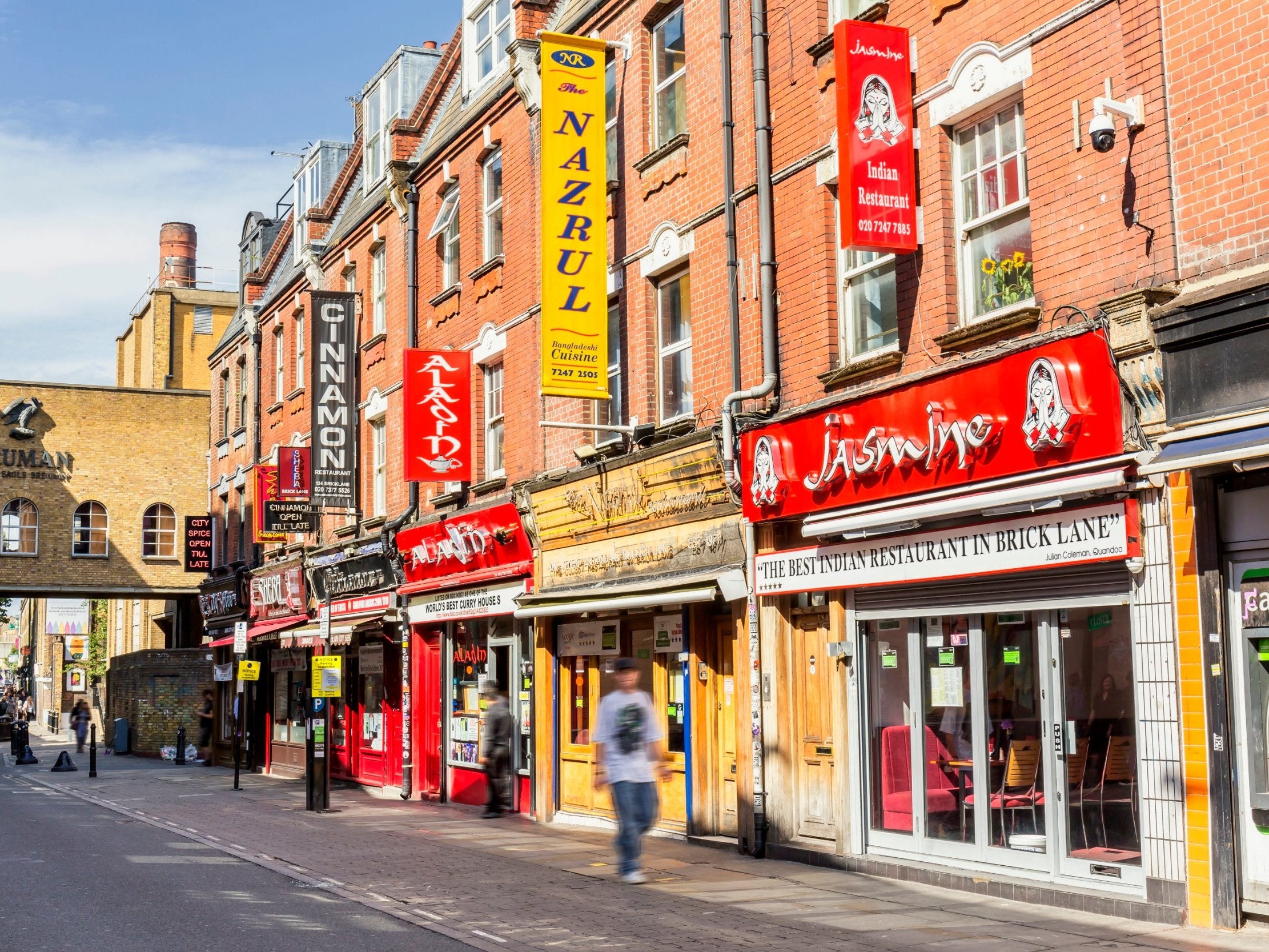Brexit has divided the curry industry – and unless we have a Final Say it will damage it even further
The Brexiteers’ promises worked, and many chefs and restaurateurs of curry houses backed Brexit thinking it would help them recruit the staff they desperately need – they now see it’ll do just the opposite


Your support helps us to tell the story
From reproductive rights to climate change to Big Tech, The Independent is on the ground when the story is developing. Whether it's investigating the financials of Elon Musk's pro-Trump PAC or producing our latest documentary, 'The A Word', which shines a light on the American women fighting for reproductive rights, we know how important it is to parse out the facts from the messaging.
At such a critical moment in US history, we need reporters on the ground. Your donation allows us to keep sending journalists to speak to both sides of the story.
The Independent is trusted by Americans across the entire political spectrum. And unlike many other quality news outlets, we choose not to lock Americans out of our reporting and analysis with paywalls. We believe quality journalism should be available to everyone, paid for by those who can afford it.
Your support makes all the difference.It never ceases to surprise me that despite much of the UK’s seemingly constant battle against diversity, curry remains the nation’s favourite dish. Imagine all those Brexit voters outraged by how immigrants are “taking over their community” tucking into a chicken tikka masala at the end of the day and seeing no hypocrisy in their actions.
In fact, Brexit could have a devastating effect on the curry industry. While this may not seem like the most pressing issue at hand, it’s an important reminder of how leaving the EU will impact us in more ways than we could imagine.
Brick Lane in east London is famous for its curry houses and attracts tourism in part thanks to this feature, but it too is struggling to find staff. From April 2016, Tier 2 visa restrictions became tighter with the introduction of a new £35,000 salary threshold, and many chefs from India and Bangladesh earn much less than this, leaving curry houses unable to find the necessary staff to meet demand. An increasing number of EU nationals were happy to fill these roles, but have now been returning to their home countries with the uncertainty of Brexit, leaving restaurants unable to find the necessary staff to meet demand.
This week at the annual British Curry Awards Liberal Democrat leader Sir Vince Cable gave a speech, reminding us all that Tory Brexiteers misled the community about EU withdrawal making it easier for Indian and Bangladeshi chefs to come to Britain. In her “Save Our Curry Houses” campaign, Priti Patel claimed that a Leave vote would mean more chefs and staff would be able to come over from Asia because of an end to freedom of movement from the EU. Cable has long recognised the difficulties in recruiting qualified staff for curry houses, which is why he proposed a “vindaloo visa” plan, which would allow chefs to come to the UK for a year to train new staff. Cable has claimed that Theresa May received this proposal when she was home secretary, but has ignored it.
In 2016 Enam Ali, founder of the British Curry Awards, also submitted a 100 page document to the Home Office, with suggestions on how to make the system work better. He suggested allowing people to work in the UK but not giving them the right to claim any government benefits or bring their family. The idea was for them to come here for a set period to work as a chef, then return. Ali claimed that the government would not touch his submission until the Brexit situation was settled.
It’s hard to see how leaving the EU could possibly benefit curry houses and their staffing issues unless there is a clear initiative regarding immigration from Asia. But the promises worked, and many chefs and restaurateurs in Britain’s £4.2bn curry industry backed Brexit under the assurance that it would boost their businesses. They now feel let down. Despite Theresa May describing the curry industry as an “immensely important and popular part of British life”, she seems to have done little to help it survive.
In speaking to the people who run these restaurants, it seems clear that Brick Lane in particular is divided over Brexit because people feel they were lied to. Now it’s become apparent to many that Brexit will not help the curry industry. In fact it will have a negative effect on the hospitality sector, as many restaurants rely on EU employees. There are curry houses still on the fence, who still believe that Brexit could help their businesses, while others think the industry should take a stand and demand a second referendum now they know the facts. Of course, there are those who never believed the Brexiteers’ promises in the first place, and are resentful of those who did, putting all their futures in jeopardy.
This sense of divide was particularly noticeable at the British Curry Awards, where the tension was palpable every time the topic of Brexit came up.
The curry industry is just one of so many which were manipulated by Brexiteers into believing that leaving the EU would be beneficial. We know that the deal we now have on the table will have a detrimental effect on a number of areas of the economy. This is not the Brexit people were promised and it is not what we should end up with. For the sake of the nation’s favourite dish – and everyone else – we must insist on a Final Say, where people can vote from a place of information, not speculation and lies.
Join our commenting forum
Join thought-provoking conversations, follow other Independent readers and see their replies
Comments